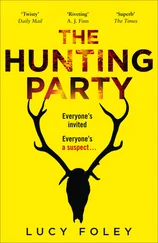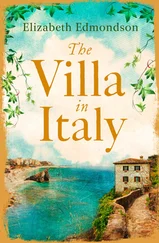They remind me a little of Papa. When you find yourself in the spotlight of his interest, there is no greater feeling. And then without warning, it will blink off – he will have made his way on to something else. He is a man of great passions, though most are fleeting. Our education was one. He removed us from school, claiming that our heads were being filled with religious dogma, announced that he would teach us himself. At first, he was wonderfully dedicated to it. He spent hours with us in his study, a generous – if sometimes impatient – tutor. As with his views about many things, his idea of what children should learn was a little eccentric. As a result, I got a good grounding in Greek philosophers, Spanish literature and German political theorists, speak English well and French passably, but know almost nothing in the way of basic arithmetic. Then, one day, the lessons stopped. He needed to focus on the second book: he needed us out of the study, actually … out of the house, making as little noise as possible. They never resumed.
The garden was another. Papa didn’t think of it, after a while, though he had grand plans for it at one stage. Once, when my aunt and uncle came to visit from Madrid, they helped to clear the weeds that had grown over the vegetable beds. They always seemed to enjoy spending time with Tino and me – they have no children of their own. My uncle, Tío Salvador, cut canes for beans and made bird-scarers for our fig tree. Tía Aída showed us how far apart to plant the potatoes, carrots, lettuces. All the while my father sat in his study, hammering away so hard at his typewriter we could hear the clack of the keys outside, above the chatter of the crickets.
The passions that remain steadfast: his writing, his politics, his country. He is a great man, Papa. His first book, about the struggle for a modern Spain, made his a name to conjure with. It has been read by the people that matter, as Uncle Salvador said, even if wasn’t a bestseller. Besides, the next book – more ambitious, more polemic – will be the one to make his name.
We love him helplessly. At times, desperately.
Often, he is away from home. He will go to Madrid to give lectures. Or he will go on his crusades: to poor peasant farmers in Estremadura, to industrial workers in the Basque country, explaining the concept of Socialism. It is not so bad. We always know he will return. I am fifteen now, nearly a woman. Besides, even when Papa is here I do most of the work about the house. He isn’t lazy, he simply doesn’t see the need for such things. While he is working on his second book – which he has nearly finished – he would quite happily live on hunks of stale bread, and let the house fall down around us.
I have always looked after Tino, too. My mother died giving birth to him. She was English, and extremely clever: my father met her studying at Cambridge. She had been told that she probably wouldn’t be able to have another child, after me. But she had been determined, as she was about many things. I thought I might never be able to forgive the baby for it, that I might hate him. But when I saw him for the first time – truly saw him, with his solemn dark eyes and pale silk of hair – it was as though he had reached out with his little fist and taken hold of my heart. From then on, it was his. I knew that I would fight like a lioness to keep him safe from harm.
Tino is a dreamer. He will spend hours drawing in his sketchbook, fantastical diagrams that seem to bear no relation to anything glimpsed in life. Except I asked him, once, what they were and he told me: ‘the bees’. As I looked, I began to understand. He had watched them move from flower to flower, and had tried to replicate the various paths of their flight with his crayons: a different hue for each bee. So what looked like nothing more than a great tangle of colour was actually something strangely logical, and oddly beautiful. That is a fitting description of his character, I think.
While other six-year-old boys might be pulling the wings off flies, Tino is content to watch his bees for hours, learning their secrets. On any given day, if you were to look from the windows of the kitchen, you would be able to see the top of his head above the stone wall that separates the main part of the garden from the hives. There are six hives in total, producing far more honey than we would ever be able to eat ourselves. They were another fleeting interest of Papa’s. Luckily, Tino’s love for the bees has far outlasted his.
To my eyes the movements of the insects appear aimless. But Tino has explained to me that the bees are organized, incredibly so. There are patterns to their movements, varying from season to season, that he is learning to read. He has told me about the queen, the female workers, the male drones. How they build and clean their hive, how they make, dry and store the honey, how they could make a new queen, if they needed one, in a special cell in the honeycomb. The ordinary worker-bee larva becomes something extraordinary, becomes a mother. Just sometimes I think that if we could make ourselves a new mother – or if we could make me into a real adult – things might be easier for us.
That evening, when we camped in the garden, above all of the other nighttime sounds I remember that of Tino’s breathing, fast with the wonder of it all. I felt his hand reach for mine, and I took it, and held it tight.
‘Can you see them?’ he asked.
‘Yes.’
We watched them, the dancing points of light, for so long that even when I closed my eyes I could see them there, imprinted somewhere behind my eyelids.
That, then, is the last good memory. It has taken me a while to bring myself to remember past that point.
It is a few weeks later, a July morning. I discover Papa listening to the radio. When I ask him if he wants me to make him a coffee – he drinks several cups a day, thick and black in the Turkish style – he makes a quieting motion with one hand. I listen with him, to see what it is that has him so excited.
There has been an incident, in Morocco, the announcer says. A young soldier has led some soldiers into an uprising there. They are trying to make their way to Spain. This is not the thing that frightens me; the man on the radio insists that it will be snuffed out within twenty-four hours – if that. The frightening thing is my father’s face, when he turns to look at me.
‘It’s coming,’ he says. ‘I knew it would happen. I’ve been saying it for the last year. But they’ve become complacent.’
‘But the man says—’
‘He says what they think people want to hear.’
‘Hear what?’ We turn, and see Tino, trailed by his elderly cat, Señor Bombón.
My father is, I think, about to tell him – but I get there first. ‘Nothing, Tino,’ I say now. ‘It’s nothing.’ For what is the point in a six-year-old worrying over something that does not concern him, that will be over before it has even begun? Especially a child who has terrible nightmares already: whose imagination is an overly fertile place. Even innocuous-sounding phrases – a chance mention by my father of ‘the trees in the distance’ turned those trees into one of his great fears. When he woke up screaming one night and I went to ask what the matter was, all he would say, as he clung to me, was: ‘ los árboles, los árboles ’. Sometimes, still, he wets the bed – a thing that we have to keep a secret from Papa, because Tino can’t bear the shame of him finding out.
Now, when he looks unconvinced, I say: ‘I’ve been wondering, something, Tino. About the bees. Perhaps you could explain it to me?’
It is a low trick, perhaps, but it works.
How long, though, will I be able to hide it from him? Because the thing is not crushed. Not in twenty-four hours, not in forty-eight. It spreads to the mainland. It moves through the country like a forest fire, snatching new fuel to feast upon. Seville, Cordoba, Saragossa, Papa tells me: all have fallen to these men they call the rebels. There are soldiers, trained marksmen, marching from their barracks to massacre unarmed townspeople. Besides the Spanish soldiers – known for their skill in the fine art of killing – there are the Moorish soldiers, known too for their talent, but also for their absolute lack of mercy.
Читать дальше












